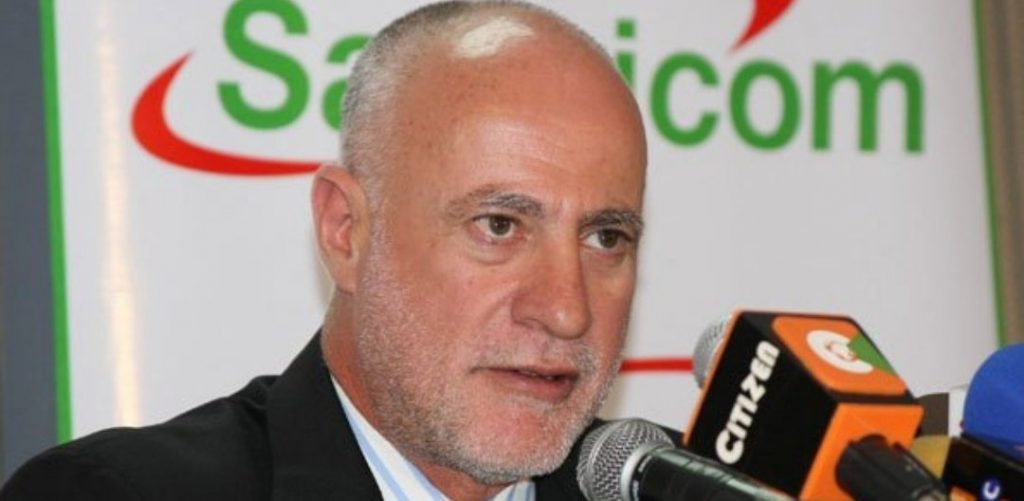Fuliza, an overdraft facility offered by NCBA Bank and KCB through Safaricom’s M-Pesa is one of the fastest-growing overdraft facilities in Kenya. According to data from the two lenders, Kenyans borrowed Ksh578 billion from the facility in 2021, or Ksh1.58 billion daily.
While this is business success for the owners, former Safaricom CEO Michael Joseph feels that three lending products offered through Safaricom, Fuliza, M-Shwari and KCB-M-Pesa, have not been serving the purposes they were intended for.
For instance, Joseph says that M-Shwari was intended to encourage savings rather than borrowing, but the tables have turned.
“When I introduced M-Shwari, the plan was that it was going to be a savings and borrowing product. So first, you save and get the habit of saving. Then after saving, you borrow money based on your savings,” Mr Joseph says.
“That was the plan. But unfortunately, it never worked out that way. People borrow more than they save, which is not what I intended.”

“I wanted people to save for the future instead of borrowing for funerals or weddings or school fees. Unfortunately, because you (telcos and banks) make more money when you lend people more money, it became a lending product,” said Mr Joseph.
“In my personal view, some of the things we are doing with M-Pesa, like borrowing, are not good for the people,” said Mr Joseph.
Usually, the loan on Fuliza is recovered automatically when a customer received money on his/her M-Pesa wallet, something that has lowered cases of default. Subscribers who do not settle their overdrafts within 30 days are barred from using their unused credit limit until they pay the outstanding amount.
Every second in 2021, Safaricom processed 300 overdraft requests (Fuliza)to bail out its subscribers.
Transactions stood at 787 million in the period, up from 392million in 2020, a growth of almost 100 percent.
Despite Joseph seeing Fuliza and other lending facilities from a negative perspective, current Safaricom CEO Peter Ndegwa termed the services as solutions to society.
“We are set to continue providing solutions to society’s most pressing challenges and support other businesses, especially small and medium enterprises to thrive through financial services solutions,” said Peter Ndegwa, CEO, Safaricom, in September 2021.
Read: Fuliza: Safaricom’s Golden Goose Opens Political Battlefront
>>> Atwoli Takes On Fuliza And Digital Loan Apps


![Judith Jeptum crosses the finish line at the Paris Marathon 2022. [Photo/ Eurosport]](https://businesstoday.co.ke/wp-content/uploads/2022/04/3348882-68457908-2560-1440-150x150.jpg)
![Queues for fuel at Riva Petrol Station in Bomet County. [Photo/ TWITTER/ @Jumaf3]](https://businesstoday.co.ke/wp-content/uploads/2022/04/jumaf3-150x150.jpg)








![Parliament in a past session. [Photo/Parliament of Kenya/Facebook]](https://businesstoday.co.ke/wp-content/uploads/2026/02/Parliament-Kenya-680x486.webp)
I have to agree with Michael Joseph’s sentiments. We need to encourage more saving and less borrowing; and borrowing on the strength of one’s savings.
Michel Joseph is talking about human face of business. If customers succeed,business succeed in the long-term and the business acquires a future.We call it sustainability.His advice,ripping off a customer for today profit is myopic n your competitors my exploits this by enlightening the customer leaving him/her with sour taste hence mass rejection/desertion to more humane alternative .Customer must not feels used n taken advantage of like it soo happens with hawkers on street of Nairobi selling their merchandise to unsuspecting ,tripple or more their buying price from a shop in same street behind your back.Safaricom n partners should work to minimise or eliminate future resentment against their business as they are not in hawking business. Hawkers cares very little about return customer.
I support Michael Joseph.The people are being ripped off without realising.
Let them observe that those not on Fuliza are doing well compared to themselves.
To be addicted to Fuliza is same as addicted to gambling and drinking. Do you make money in such undertakings?